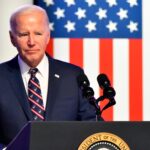Elon Musk’s recent actions have sent shockwaves through the GOP, putting the party’s hopes of holding onto power at stake. Musk, who was once a major donor to the Republican party, has now launched a war against the GOP leadership, including President Donald Trump.
In a bold move, Musk took to social media to criticize Republicans for their tax-and-spending bill, which he believes does not cut enough government spending. He threatened to challenge Republicans who supported the bill and even floated the idea of launching a third party. Musk’s actions have created a rift within the party, with some Republicans trying to downplay the situation and others distancing themselves from him.
The fallout from Musk’s actions is already being felt within the GOP. Key lawmakers are working to navigate the situation and minimize any potential damage to the party’s domestic policy package and its posture for the upcoming midterms. Musk’s decision to sever ties with Trump has only added fuel to the fire, with Musk accusing Trump of lying and having a cozy relationship with Jeffrey Epstein.
As Musk’s popularity wanes and his relationship with Trump disintegrates, Republicans are left wondering what the electoral fallout will look like. Already, two of Trump’s top campaign operatives have signed up to work with Musk’s Building America’s Future PAC, signaling a shift in allegiances within the party.
The GOP now faces a challenging road ahead as it grapples with the fallout from Musk’s actions and tries to navigate a political landscape that has been upended by the world’s richest man. The party’s hopes of holding onto power are now in jeopardy as Musk’s war against the GOP threatens to reshape elections with his wealth and influence. Elon Musk’s recent decision to adopt a scorched-earth strategy in the political arena has raised concerns among Republicans about potential fallout and dueling allegiances. While some within the party had already been preparing for the upcoming elections without relying on Musk’s financial support, there are mixed feelings about the effectiveness of his previous efforts.
Last year, Musk’s super PAC, America PAC, spent $19.2 million supporting GOP candidates in 18 battleground House races. Despite winning 10 of those races, Musk’s group only accounted for 12 percent of Republican outside spending in those high-profile contests. The Congressional Leadership Fund, the main super PAC affiliated with House Republicans, still held the title of the largest GOP spender.
Critics have questioned the impact of Musk’s spending, with some arguing that his money could have been more strategically allocated. GOP media consultant Chris Mottola pointed out that while Musk has the financial resources, his approach to spending may not align with the party’s overall objectives.
In light of Musk’s wavering commitment to political spending, there is uncertainty about his potential involvement in the upcoming midterms. While Musk has hinted at playing a role, he has also suggested stepping back from the political arena. If Musk chooses to take on the party, he will need more than just money to make a significant impact.
The prospect of Elon Musk going up against the Republican Party has raised questions about the availability of qualified operatives willing to support his efforts. While many operatives may be motivated by financial incentives, there is reluctance to assist Musk in further dividing the Republican Party ahead of the midterms.
As the political landscape continues to evolve, Musk’s potential influence and actions remain uncertain. Whether he will ultimately commit to a full-fledged campaign against the party or take a step back from political spending remains to be seen. The upcoming midterms could prove to be a pivotal moment in determining the extent of Musk’s impact on the Republican Party.
Contributors to this report include Lisa Kashinsky, Jessica Piper, Holly Otterbein, Dasha Burns, Nicholas Wu, Sophia Cai, Jordain Carney, and Meredith Lee Hill.








